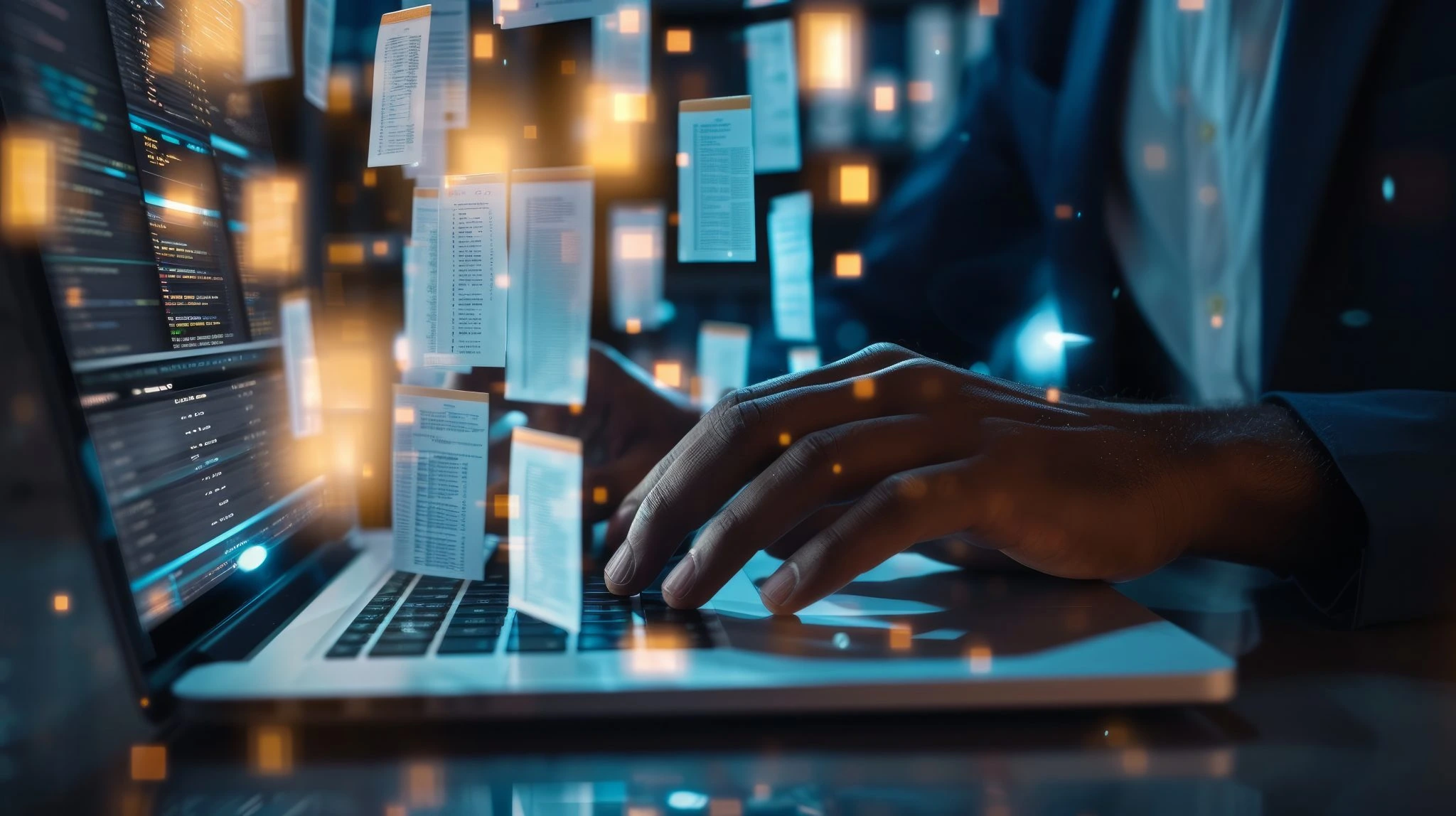- Upgrade your defenses, not your anxiety. Let’s Talk! Contact Us

Understanding the Crucial Role of Cybersecurity in Safeguarding Your Organization
Welcome to the
digital era, where information is just a click away and connectivity has become
an integral part of our daily lives. While this brings countless benefits and
opportunities for organizations, it also opens up a world of vulnerabilities
and threats. In this fast-paced technological landscape, cybersecurity plays a
crucial role in safeguarding your organization from malicious actors seeking to
exploit weaknesses in your systems. From data breaches to identity theft,
cyber-attacks can have devastating consequences that extend far beyond
financial losses. So today, we dive deep into the realm of cybersecurity -
exploring its importance, understanding various types of threats, discussing
the severe consequences of a breach, and most importantly – equipping you with
essential strategies on how to protect your organization's valuable assets. Get
ready to fortify your digital fortress as we embark on this journey into the
world of cybersecurity!
The Importance of Cybersecurity
In today's
interconnected world, cybersecurity is of paramount importance for
organizations across all industries. It serves as a shield against the
ever-evolving landscape of cyber threats that can potentially wreak havoc on
your business operations. By implementing robust cybersecurity measures, you
are not only protecting sensitive data but also safeguarding your reputation
and maintaining the trust of your customers.
One primary
reason why cybersecurity matters is because it helps prevent unauthorized
access to confidential information. Whether it be financial records,
intellectual property, or customer data, keeping this information secure is
vital in maintaining a competitive edge and ensuring compliance with legal
regulations.
Moreover,
investing in cybersecurity measures demonstrates a commitment to prioritizing
the privacy and security of your stakeholders. By actively addressing potential
vulnerabilities within your systems, you create an environment that fosters
trust - both internally among employees and externally with clients and
partners.
Cybersecurity
also plays a crucial role in minimizing downtime caused by cyber attacks. A
successful breach can lead to disruptions in business operations that may
result in significant financial losses. With effective cybersecurity protocols
in place, you can mitigate these risks and ensure uninterrupted productivity.
Furthermore, as
technology continues to advance rapidly, so do the techniques employed by
hackers and cybercriminals. Staying proactive with robust cybersecurity
practices enables organizations to stay one step ahead of potential threats
rather than simply reacting after an attack has occurred.
Understanding
the importance of cybersecurity goes beyond mere protection from external
threats; it encompasses preserving valuable assets such as data integrity and
brand reputation while fostering an atmosphere of trust among stakeholders. So
don't wait until disaster strikes – take charge now by investing in
comprehensive cybersecurity strategies tailored specifically for your organization's
needs!
The Different Types of Cybersecurity Threats
Cybersecurity
threats come in various forms, each possessing its own set of challenges and
risks. One common type is malware, which includes viruses, worms, and trojans
that can infiltrate systems and cause widespread damage. These malicious
programs can steal sensitive data, disrupt operations, or even render entire
networks unusable.
Phishing attacks
are another prevalent threat where attackers use deceptive emails or websites
to trick users into revealing personal information such as passwords or credit
card details. By impersonating trusted entities like banks or online retailers,
cybercriminals exploit human vulnerability for their gain.
Ransomware
attacks have also become increasingly common in recent years. This type of
attack involves encrypting a victim's files and demanding a ransom payment in
exchange for the decryption key. Organizations that fall prey to ransomware may
face significant financial loss and reputational damage if they are unable to
recover their data.
Another major
threat is social engineering tactics employed by hackers who manipulate
individuals into divulging confidential information or granting unauthorized
access to networks. These tactics often involve psychological manipulation
through techniques such as pretexting or baiting.
There are
Distributed Denial of Service (DDoS) attacks where cybercriminals overwhelm a
targeted system with an influx of traffic from multiple sources until it
becomes inaccessible. This can result in significant downtime for organizations
and potential revenue loss.
It is crucial
for organizations to stay vigilant against these various cybersecurity threats
by implementing robust security measures across their infrastructure. Proactive
measures include regular software updates and patches, strong password
policies, employee training on identifying phishing attempts, and the use of
advanced firewalls and antivirus software.
By understanding
the different types of cybersecurity threats that exist today and taking
appropriate precautions to safeguard against them, organizations can
significantly reduce their risk exposure and better protect their valuable data
assets from falling into the wrong hands.
The Consequences of a Cybersecurity Breach
A cybersecurity
breach can have devastating consequences for any organization. From financial
losses to reputational damage, the impact can be far-reaching and long-lasting.
One of the most
immediate consequences is the loss or theft of sensitive data. This could
include customer information, trade secrets, or proprietary data. Once this
information falls into the wrong hands, it can be used for malicious purposes
such as identity theft or corporate espionage.
In addition to
data loss, a cybersecurity breach can also disrupt normal business operations.
Systems may become inaccessible or slow down significantly, causing delays and
frustration for both employees and customers. This downtime can result in lost
productivity and revenue.
Another
consequence is the potential legal and regulatory implications that come with a
data breach. Depending on your industry and location, you may be subject to
various laws and regulations regarding data protection and privacy. Failure to
comply with these requirements can lead to hefty fines and penalties.
Furthermore,
there is the significant risk of damage to your organization's reputation
following a cybersecurity incident. Customers value trustworthiness when
choosing which businesses to engage with, so news of a security breach may
cause them to lose confidence in your ability to protect their information.
There is also
the potential for lawsuits from affected parties seeking compensation for
damages resulting from the breach. These legal battles can further drain
resources and tarnish your organization's image.
Given these
serious consequences, it becomes clear why investing in robust cybersecurity
measures is crucial for safeguarding your organization against cyber threats.
How to safeguard your organization with Cybersecurity
When it comes to
safeguarding your organization, cybersecurity plays a crucial role in
protecting sensitive data and preventing unauthorized access. With the
increasing number of cyber threats targeting businesses of all sizes,
implementing effective cybersecurity measures is essential for maintaining the
integrity and security of your organization's information.
It is important
to educate employees about best practices for cybersecurity. This includes
training them on how to recognize phishing emails, creating strong passwords,
and regularly updating their software. By raising awareness among your staff,
you can significantly reduce the risk of falling victim to common
cyber-attacks.
Implementing
robust firewall and antivirus software is essential in safeguarding your
organization's network. These tools act as a first line of defense against
malware and other malicious activities by monitoring incoming traffic and
blocking any potential threats.
Additionally,
regular data backups are crucial in case of a breach or system failure. By
storing copies of important files offsite or on cloud-based platforms with
encryption capabilities, you can ensure that even if your systems are
compromised, you still have access to critical information.
Furthermore,
conducting regular security audits can help identify vulnerabilities within
your organization's infrastructure. This involves assessing hardware
configurations, network settings, user privileges, and overall system security
protocols. By addressing any weaknesses promptly through patch updates or system
modifications based on audit findings will help minimize potential risks.
Lastly but not least importantly should be establishing an incident response plan (IRP). In the eventuality of a cybersecurity breach occurs despite all preventive measures taken; having an IRP helps mitigate damage by providing step-by-step instructions on how to respond effectively during such incidents.

Conclusion
In today's
digital age, cybersecurity plays a crucial role in safeguarding organizations
from the ever-evolving threats of cyber-attacks. With the increasing reliance
on technology and data, it is essential for businesses to prioritize
cybersecurity measures to protect their sensitive information, maintain
customer trust, and avoid potentially devastating consequences.
By understanding
the importance of cybersecurity and being aware of the different types of
threats that exist, organizations can take proactive steps to strengthen their
defense. Implementing robust security protocols, such as firewalls, encryption
techniques, secure networks, and regular system updates can go a long way in
mitigating potential risks.
Moreover,
fostering a culture of cybersecurity awareness among employees is vital.
Conducting regular training sessions on safe online practices and reinforcing
the significance of strong passwords and vigilant behavior can help minimize
human error vulnerabilities.
It is also
essential for organizations to collaborate with reputable IT professionals or
managed service providers who specialize in cybersecurity. These experts are
equipped with the knowledge and expertise needed to assess potential risks
within an organization's infrastructure and implement effective solutions
accordingly.
Investing in
comprehensive cybersecurity measures is not just about avoiding financial
losses or reputational damage; it is about protecting what matters most – your
organization's data integrity and your customers' privacy. By staying one step
ahead of cybercriminals through continuous monitoring and adaptation to
emerging threats, you can ensure that your organization remains resilient in
this digital landscape.
Remember:
Cybersecurity should never be an afterthought but rather an integral part of
every business strategy. So, stay informed, stay prepared, and stay secure!
Source:
Internet
Reach out to us any
time to get customized forensics solutions to fit your needs. Check out Our Google Reviews for a better
understanding of our services and business.
If
you are looking for Cybersecurity Services for Business in Bangalore,
give us a call on +91 91089 68720 / +91 94490 68720.
Search
Popular categories
Forensics
27Cybersecurity
16Awareness
4Current Trends
3Case Studies
1Latest blogs

Pre-Exit Forensics: Prevent Data Theft Before Employees Leave

Mac Forensics: Why It Matters for Cybersecurity, Compliance, and Corporate Protection

Why Digital Forensics is Crucial for Solving Data Breach Investigations
© Copyright 2024 Proaxis Scitech Private Limited
Write a public review